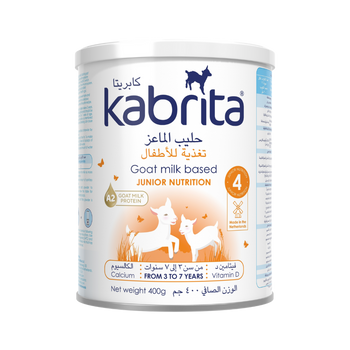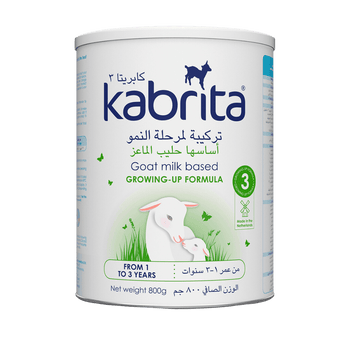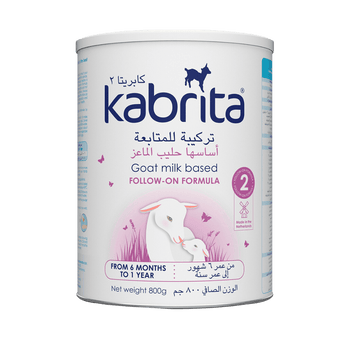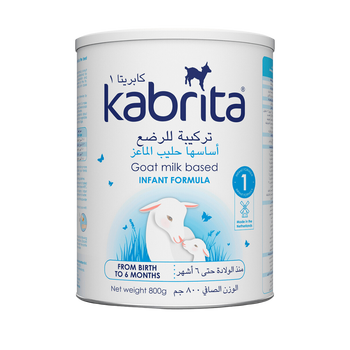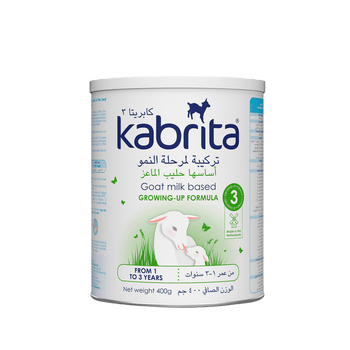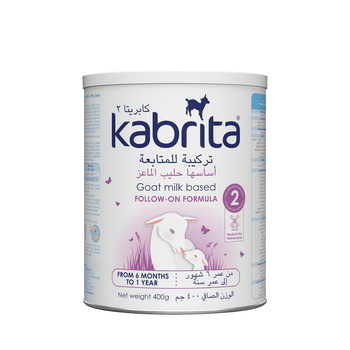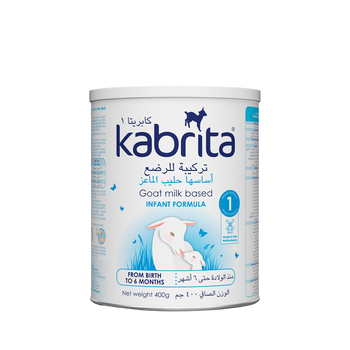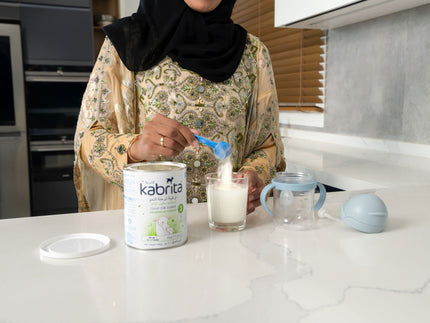Infant and Toddler Nutritional Needs

Establishing healthy dietary patterns at an early age can set the stage for a lifetime of good eating habits. As infants and toddlers have unique nutritional needs that differ from those of adults, it is essential to understand the importance of providing them with the appropriate nutrients to support their growth and development.
As a parent, you may find understanding your child's nutritional requirements challenging, especially since they change as they grow. From breastfeeding or formula feeding to introducing solid foods and beyond, it's essential to know what to feed your child at each stage of their development. We will delve deeper into early childhood nutrition and learn how to give our little ones the best start possible.
How Often Should My Baby Eat?
One of the many questions you may have is how often your baby should be eating. The frequency of feedings will vary depending on the age of your baby, as their nutritional needs change over time.
- 0-6 Months
For infants from birth to six months, the primary source of nutrition is breast milk or formula. Newborns require frequent feedings, typically every two to three hours, or whenever they show signs of hunger. This translates to around eight to twelve feedings a day.
By the age of two to four months, most babies begin to establish a feeding routine and may sleep longer stretches at night. However, it's still important to offer frequent feedings during the day to ensure they get enough nutrition.
- 6-12 Months
Around six months, babies start to transition to solid foods while still receiving breast milk or formula. At this age, they typically eat every three to four hours, with three meals and two snacks a day. Breast milk or formula should still be the primary source of nutrition, with solid foods introduced gradually.
As babies grow and become more active, their nutritional needs increase, and they may require larger and more frequent feedings. They may also begin to self-regulate their feeding patterns, indicating when they're hungry or full.
- 12-24 Months
Toddlers between the ages of one and two typically eat three meals and two snacks a day, with a range of foods from all food groups. Offer small, nutrient-dense meals and snacks every three to four hours to ensure they receive adequate nutrition.
As toddlers become more independent, they may start to become picky eaters, and mealtimes may become a challenge. It's essential to remain patient and encourage a varied and balanced diet.
What Are the Nutritional Needs of Toddlers?
Toddlers have high nutritional requirements due to their rapid growth and development, making it essential to provide them with a balanced and varied diet. Adequate nutrition is crucial for toddlers to develop strong bones, healthy teeth, and robust immune systems. It also supports cognitive development and helps to establish healthy eating habits that will carry into adulthood.
Good nutrition can have lifelong benefits for toddlers, reducing the risk of chronic diseases such as obesity, heart disease, and diabetes. Providing nutrient-dense foods such as fruits, vegetables, lean protein, and whole grains supports a toddler's overall health and well-being, providing them with the energy and nutrients they need to learn, play, and explore their world.
A varied and balanced diet ensures that toddlers receive all the essential nutrients necessary for optimal growth and development, setting them up for a healthy and happy future.
Important Nutrition For Your Toddler
Meeting a toddler’s nutritional requirements is essential for proper growth, development, and establishing healthy eating habits that will carry into adulthood. Here are some of the essential nutrients toddlers need for optimal growth and development:
Protein is crucial for building and repairing tissues in the body. It is especially important for toddlers as they are rapidly growing and developing. Adequate protein intake is essential for healthy muscle and bone growth, hormone production, and immune function.
Toddlers require approximately 1 gram of protein per kilogram of body weight daily. Good sources of protein for toddlers include lean meats, fish, poultry, eggs, beans, and lentils.
Carbohydrates provide energy for active toddlers. They provide sustained energy for busy toddlers and support healthy digestion.
Complex carbohydrates, such as whole grains, fruits, and vegetables, are ideal choices for their high fibre and nutrient content.
Healthy fats are necessary for brain development and energy. These fats provide essential fatty acids that support brain and nervous system development and help maintain healthy skin and hair.
Offer toddlers healthy fats from sources such as avocados, nut butter, seeds, and fish.
Iron is crucial for the production of red blood cells and energy production. Toddlers require iron for healthy cognitive development, immune function, and physical growth.
Toddlers require approximately 7-10 mg of iron daily. Good sources of iron include red meat, poultry, fish, beans, and fortified cereals.
Calcium is necessary for strong bones and teeth. Adequate calcium intake in childhood is essential for building strong bones that will last a lifetime.
Toddlers require approximately 700 mg of calcium daily. Good sources of calcium include dairy products, fortified cereals, and dark green vegetables.
Vitamin D is necessary for the absorption of calcium and healthy bone growth. Toddlers require Vitamin D to support the development of healthy bones and teeth. It is also essential for healthy immune function.
Toddlers require approximately 600 IU of Vitamin D daily. Good sources of Vitamin D include fortified milk, fish, and egg yolks. Another vitamin D rich source is goat milk, it also has high levels of vitamin B12, which is necessary for the formation of red blood cells and neurological function.
Fruits and vegetables are packed with vitamins, minerals, and fibre, making them essential for a toddler's overall health and well-being. They support healthy digestion, immune function, and cognitive development.

Best Sources of Nutrition
The best sources of nutrition for infants and toddlers vary depending on their age. Here are some examples of nutrient-rich foods and where they can be found:
For Infants of 0-6 months:
Breast milk or formula provides all the necessary nutrients for infants in the first six months of life. Breast milk is the ideal source of nutrition for infants, providing the perfect balance of carbohydrates, protein, and healthy fats. It also contains antibodies that support a baby's immune system.
For Infants 6-12 months:
As infants begin to transition to solid foods, it's important to offer a variety of nutrient-dense foods such as pureed fruits and vegetables, iron-fortified cereal, and pureed meat. These foods provide essential vitamins and minerals such as vitamin C, iron, and zinc, which support healthy growth and development. Goat milk formula is a good source of minerals, including calcium, phosphorus, and potassium, which are highly beneficial for your baby.
For Toddlers 12-24 months:
Toddlers require a balanced and varied diet that includes all of the essential nutrients. Good sources of protein include lean meats, fish, poultry, eggs, beans, and lentils. Complex carbohydrates such as whole grains, fruits, and vegetables provide sustained energy for active toddlers and support healthy digestion.
Healthy fats from sources such as avocados, nut butter, seeds, and fish provide essential fatty acids that support brain and nervous system development. Goat milk contains healthy fats such as medium-chain triglycerides (MCTs), which are easily digested and can provide a quick source of energy for the body. Goat milk also contains omega-3 and omega-6 fatty acids, which are important for heart health and brain function.
Iron-rich foods such as lean red meat, dark leafy greens, and beans support healthy cognitive development, immune function, and physical growth. Calcium-rich foods such as dairy products, leafy greens, and fortified foods support healthy bone growth and development. A variety of fruits and vegetables provide essential vitamins, minerals, and fibre, supporting overall health and well-being.
To Conclude
The development of wholesome eating habits in a child's early years is essential for their long-term health and well-being. To give infants and toddlers the nutrients they need for growth and development, it is critical to understand the special nutritional needs of these age groups.
It can be challenging to know how much and what to give your child at various stages of growth, but it is crucial to make sure they get the right nutrition.
Due to their rapid growth and development, toddlers need a lot of nutrients, and it's crucial to address these needs for both their overall health and the formation of good eating habits. Infants and toddlers need to receive all the critical nutrients required for their growth and development, hence providing the foundation for a long and happy life.
